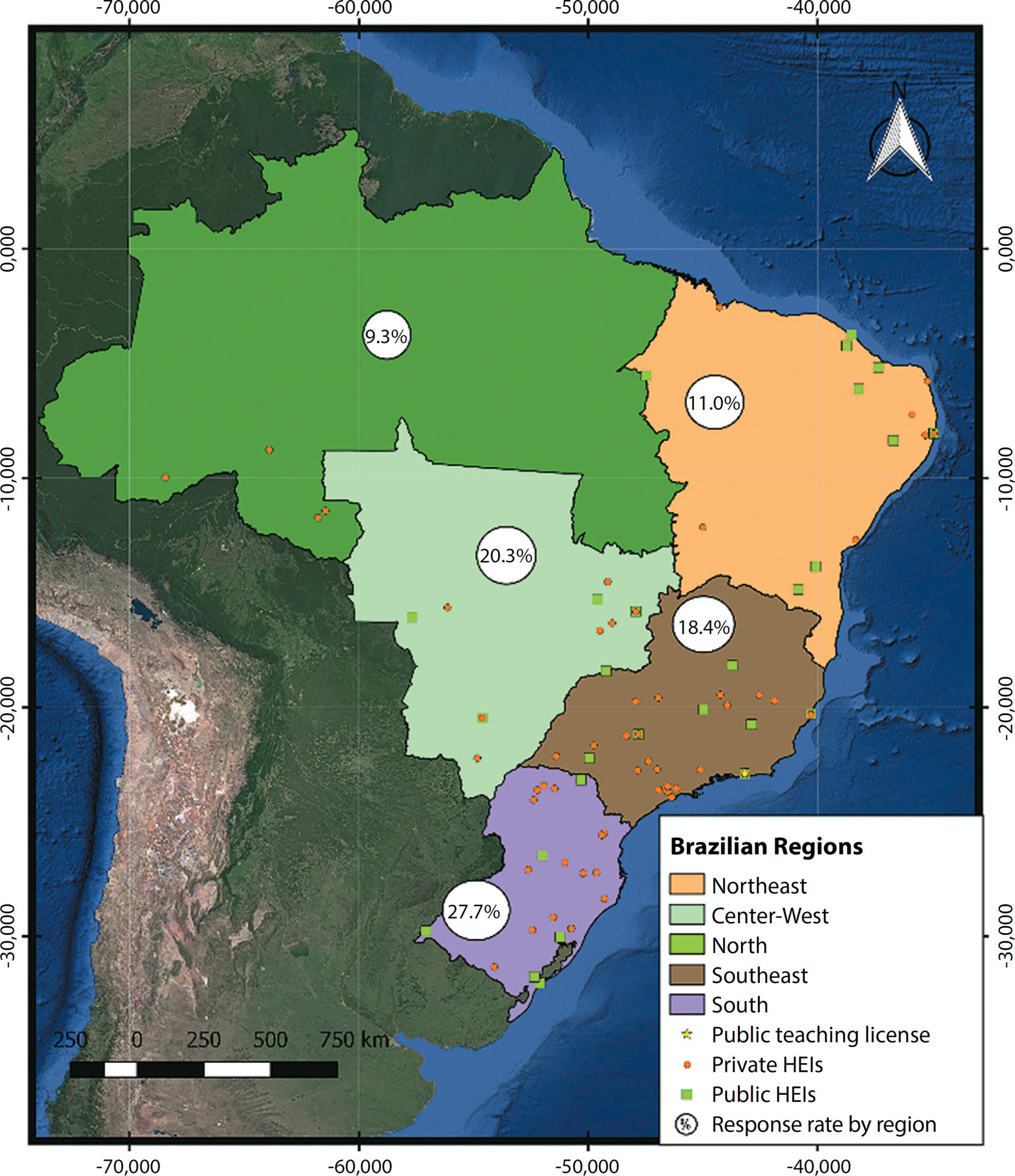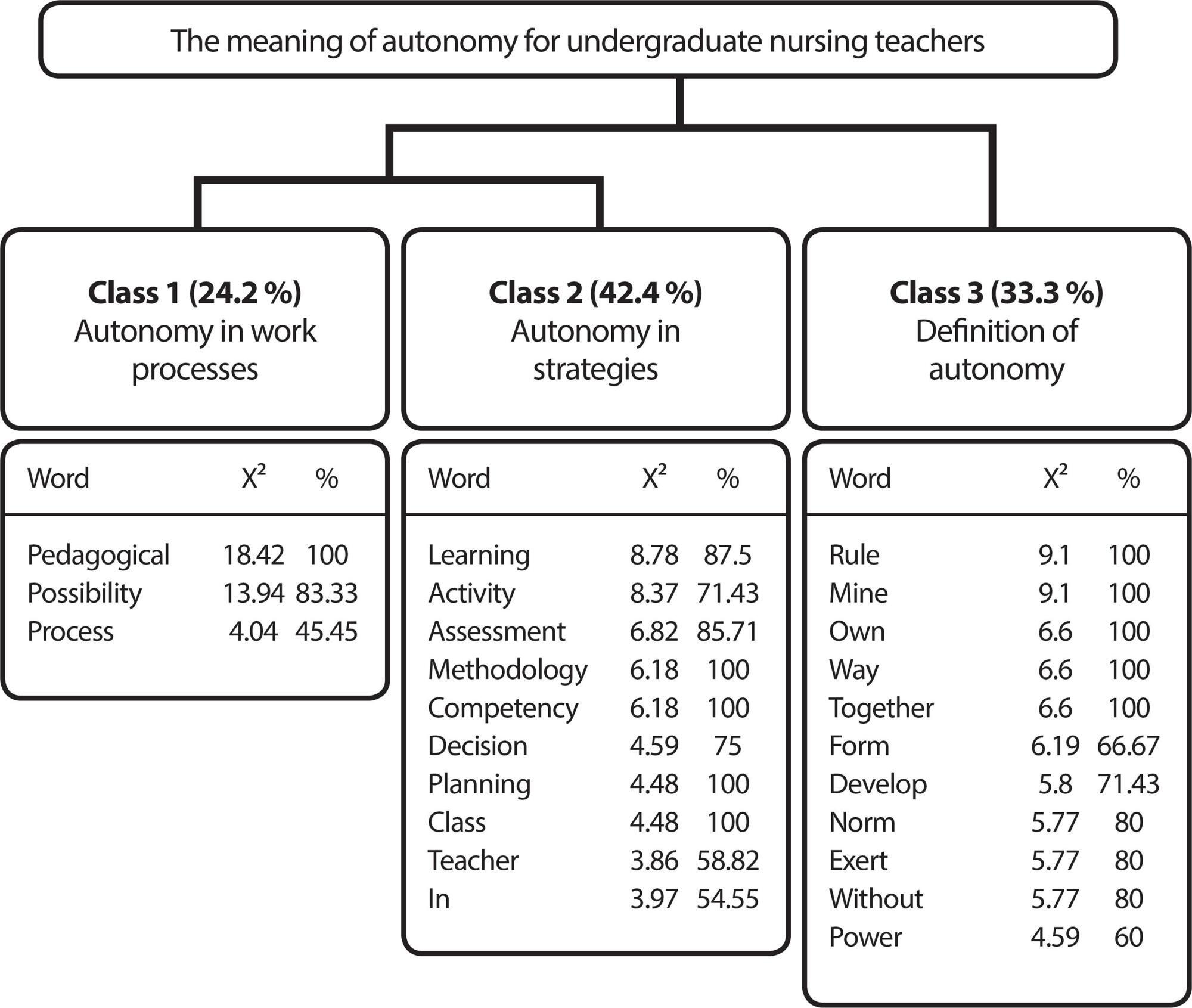-
REFLECTIVE
Perioperative nursing education in Brazil: reviewing the past to survive the future
Revista Brasileira de Enfermagem. 2022;75(3):e20210331
09-23-2022
Resumo
REFLECTIVEPerioperative nursing education in Brazil: reviewing the past to survive the future
Revista Brasileira de Enfermagem. 2022;75(3):e20210331
09-23-2022DOI 10.1590/0034-7167-2021-0331
Visualizações0ABSTRACT
Objectives:
to summarize historical aspects related to perioperative nursing education in Brazil and to outline future perspectives.
Methods:
a descriptive-reflexive essay about the historical process of Brazilian perioperative teaching at undergraduate and graduate levels.
Results:
the reflection addresses the historical axes of perioperative nursing, teaching perioperative nursing, curriculum changes, graduate studies and relationship with the perioperative period and trends in perioperative nursing education. Curriculum changes reduced time available for teaching and learning, with a focus on the perioperative period, and diluted contents of surgical nursing in other subjects, which could cause irreversible losses for generalist nurses’ training.
Final Considerations:
when reviewing historical aspects of national nursing curricula, it was found that the nomenclature perioperative nursing was never used in the curriculum, however, the surgical area has always been contemplated in undergraduate and graduate studies. Future trends indicate the need to integrate themes and prepare professionals with perspectives focused on global health and technology.
Palavras-chave: BrazilEducation, Nursing, BaccalaureateEducation, Nursing, Diploma ProgramsEducation, Nursing, GraduatePerioperative CareVer mais -
ORIGINAL ARTICLE
Brazilian Sign Language teaching in undergraduate nursing courses
Revista Brasileira de Enfermagem. 2021;74(suppl 5):e20200709
05-24-2021
Resumo
ORIGINAL ARTICLEBrazilian Sign Language teaching in undergraduate nursing courses
Revista Brasileira de Enfermagem. 2021;74(suppl 5):e20200709
05-24-2021DOI 10.1590/0034-7167-2020-0709
Visualizações0ABSTRACT
Objective:
to characterize the Brazilian Sign Language teaching in undergraduate nursing courses.
Method:
a cross-sectional study, carried out on the curriculum matrices of 553 higher education nursing courses. Data collection took place through access to the websites of the Ministry of Education and educational institutions.
Results:
the nursing courses that offered Libras were located predominantly in the Southeast (36%), coming from private institutions (87.2%). Most Libras courses (82%) were offered on a mandatory basis in the second half of the course (46.7%). The semester in which the offer was most frequent was the eighth (15.9%). There was an association (p <0.001) between the offer of course and the variable “public or private category”.
Conclusions:
there was a predominance of Libras course in private institutions, in the Southeast region, with a 40-hour workload, offered in the second half of the course.
Palavras-chave: CurriculumEducation, HigherEducation, NursingEducation, Nursing, BaccalaureateSign LanguageVer mais -
ORIGINAL ARTICLE
Simulation in nursing baccalaureate courses of Brazilian educational institutions
Revista Brasileira de Enfermagem. 2021;74(suppl 5):e20190730
05-21-2021
Resumo
ORIGINAL ARTICLESimulation in nursing baccalaureate courses of Brazilian educational institutions
Revista Brasileira de Enfermagem. 2021;74(suppl 5):e20190730
05-21-2021DOI 10.1590/0034-7167-2019-0730
Visualizações0ABSTRACT
Objective:
to characterize simulation practices in nursing courses in Brazil, considering the attributes developed, facilities, and challenges encountered.
Methods:
this is a cross-sectional and descriptive study, with a quantitative approach. Ninety-one coordinators of undergraduate courses participated in the study. An electronic questionnaire was used with open- and closed-ended questions.
Results:
the most used simulation modality is Specific Skills. Private courses and courses with integrated curricula most often use High Fidelity Simulation. Understanding the mobilization of affective attributes is still insufficient.
Conclusion:
it is important that undergraduate course managers are aware and take ownership of the elements that permeate simulation and invest to create a favorable environment for its effectiveness.
Palavras-chave: Education, Nursing, BaccalaureateHigh Fidelity Simulation TrainingPatient SimulationStudents NursingTeachingVer mais
-
ORIGINAL ARTICLE
Professional training and autonomy of nursing teachers in the qualification of higher education in nursing
Revista Brasileira de Enfermagem. 2020;73(5):e20190543
07-08-2020
Resumo
ORIGINAL ARTICLEProfessional training and autonomy of nursing teachers in the qualification of higher education in nursing
Revista Brasileira de Enfermagem. 2020;73(5):e20190543
07-08-2020DOI 10.1590/0034-7167-2019-0543
Visualizações0ABSTRACT
Objectives:
to identify the aspects related to professional training and autonomy of undergraduate nursing teachers of a public institution in Brasília, Federal District, in order to contribute to the course management and qualification.
Methods:
mixed method study conducted with 77 teachers. A semi-structured questionnaire was applied, where quantitative items were evaluated through the Student’s T and ANOVA (p<0.05%) parametric tests. The qualitative part underwent content analysis with use of the IRAMUTEQ software and descending hierarchical classification.
Results:
the training of professionals was focused mostly (67.5%) on their initial area of expertise, and their mean values in autonomy-related factors were low and moderate. Two categories emerged in the qualitative analysis: “Identifying teacher autonomy” and “Applying teacher autonomy”.
Conclusions:
understanding the meaning and degree of autonomy perceived by teachers can foster the reflection on the praxis and enhance their performance.
Palavras-chave: Education, Nursing, BaccalaureateEducation, ProfessionalFaculty, NursingNursingProfessional AutonomyVer mais



